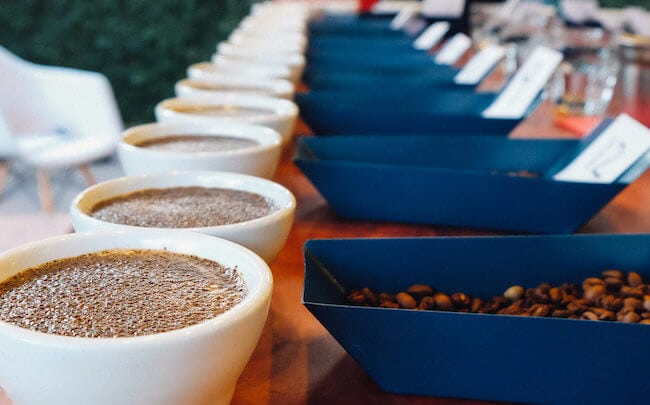Finding a bigger caffeine addict than me is hard. I wouldn’t be able to function if it wasn’t for the magical molecule also known as Methyltheobromine.
Still, I know my limits. That means I usually never drink regular coffee after 4 pm. So that’s where decaf comes into the picture.
Surprisingly, some of the best-tasting decaf coffee will be almost on par with the regular stuff taste-wise.
As people are becoming more conscious of what they’re putting in their bodies, they also start to question whether they really need all the stimulants that they're used to consuming. This has lead to a rise in decaf options in all things related to coffee.
According to the Daily Telegraph around 6 percent of people who visit coffee shops regularly order decaf.
How are de-caf coffee beans made?
Decaf coffee has been around for ages. The first attempt to isolate caffeine was made in Germany in 1820 on the behest of the renowned German statesman and poet Goethe.
Nothing happened on a commercial level until 1906, when another German named Ludwig Roselius patented a decaf method.
The method involved steaming the beans with acids and then using benzene to remove the caffeine. As you might expect, this didn’t create delicious flavors in the beans. Other solvents were tried, including the eventually more prevalent dichloromethane and ethyl acetate. However, decaf coffee continued to live with a pretty harsh reputation.
Top reasons to go decaf
- To get better sleep.
- Be less anxious
- Avoid headaches
- Pregnancy or breastfeeding
- Lower blood pressure
The Swiss water process
It wasn’t until what is known as the Swiss water process became more sophisticated that decaf beans became a more viable alternative. As the name implies, this method relies on water instead of chemicals and that helps the flavor.
The process is not that simple though, and it might make more sense to watch the video below instead of letting me butcher the concept.
The important thing you need to be aware of is that this method retains most of the coffee bean’s inherent qualities.
Even though we call the coffee decaf that’s not entirely accurate. 99 percent of the caffeine is removed with these methods, but there will always be a little bit left in each bean.
This shouldn’t affect sleep though. Also, you don’t have to fear to be jittery. However, if you had a doctor telling you to stay off caffeine, you better double check before indulging in decaffeinated coffee.
Remember, that you can also find decaf instant coffee today.
Sugar cane decaf method
Today, there’s also another decaf method that is starting to become popular, which goes under the natural-sounding name “sugar cane decaf”.
I have coffee prepared with this method, and it can taste quite magnificent and very fruity.
The method uses a compound called ethyl acetate, which is a naturally occuring compound that is developed when fruit undergoes fermentation. It’s also present in ripe bananas. When used in decaffeination, the compound is usually derived from the sugar cane.
First the coffee beans are steamed and then ethyl acetate is added to further help removing the caffeine. After that the beans are steamed one more time to remove any traces of the compound.
The coffee beans tend to look/roast a bit different compared to regular beans, but don’t be fooled. The taste is delicious!
Top Featured Image: Dennis Tang | Source
